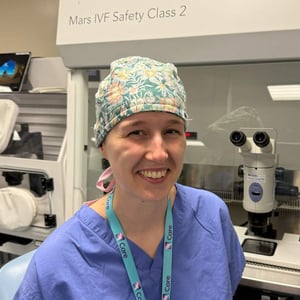Partnership Program
The Clinical Embryology MSc, jointly taught by LJMU and Care Fertility, is the only fully integrated UK master’s program in clinical embryology delivered in collaboration with fertility treatment providers.
Learn from the experts
Students benefit from learning directly from academic, research-active staff at LJMU and clinical embryology experts at Care Fertility. The course places a strong emphasis on practical experience and provides insight into current advancements in fertility research.
Career Preparation
The program equips students with a robust theoretical foundation and hands-on skills to prepare for a career in assisted reproduction. Teaching takes place in state-of-the-art facilities at both LJMU and Care Fertility, ensuring a top-tier learning environment.


%20(1).jpg?width=700&height=467&name=Training%20Lab%20-%20Teaching%20(1)%20(1).jpg)


.jpg?width=2000&height=1500&name=Untitled%20design%20(66).jpg)